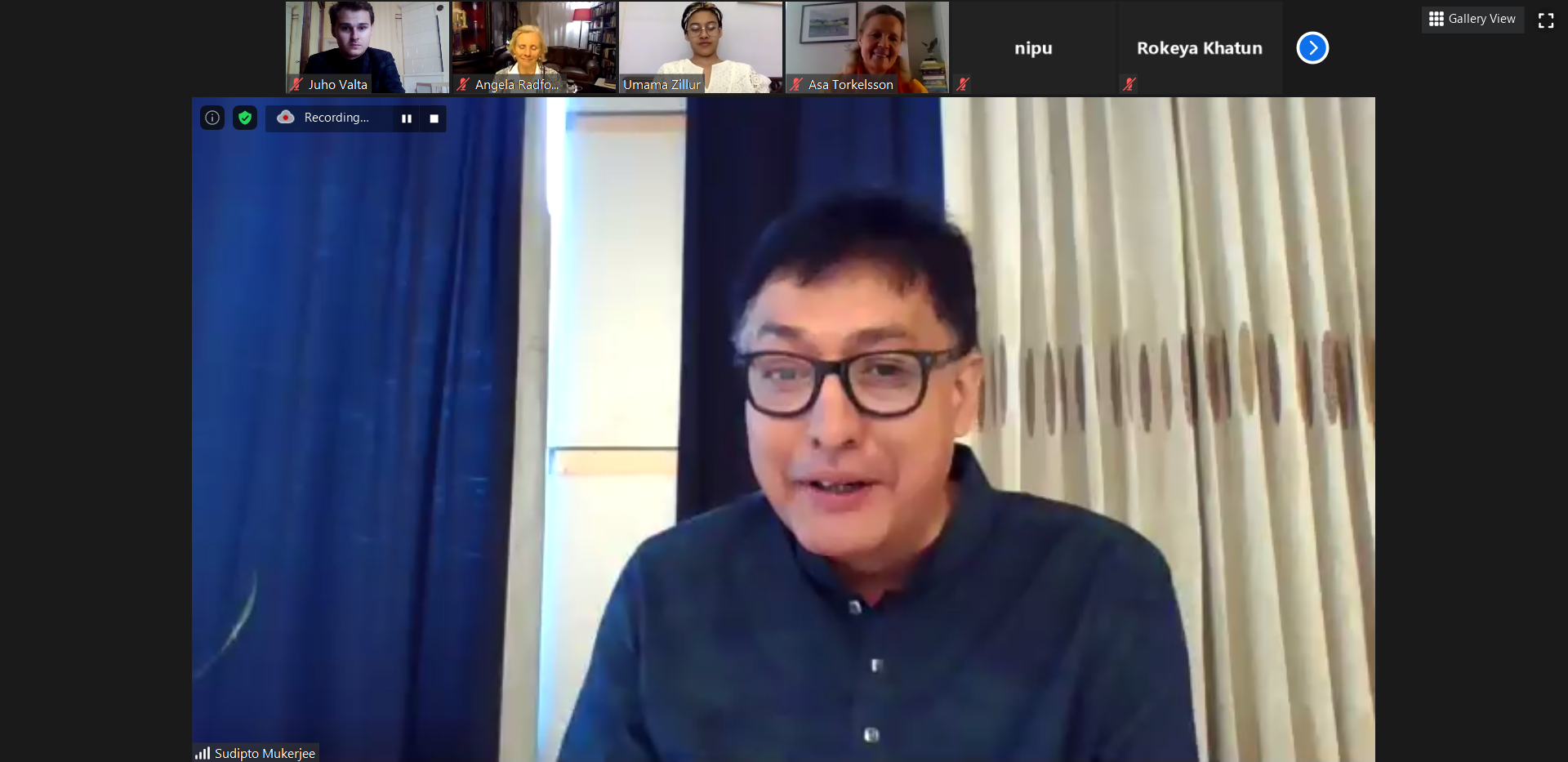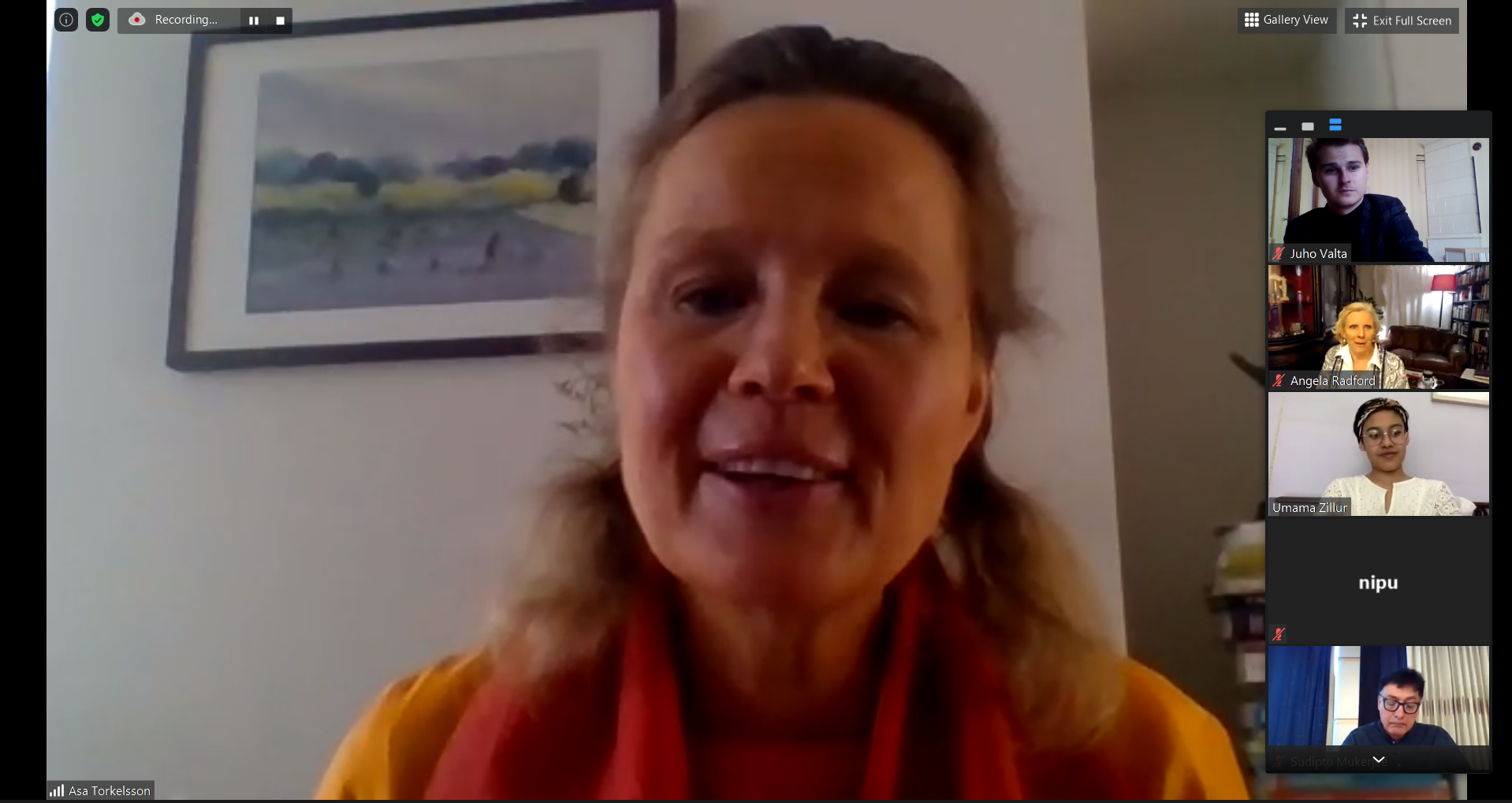“I think I have to throw all my old ideas into the dustbin!”
This was probably the most frequently heard sentence during the four-day virtual lab hosted by UNFPA Bangladesh from 10th to 13th August 2020 to find new and innovative solutions to address gender-based violence in the country. Due to the ongoing COVID-19 pandemic, new forms of preventing and reacting to gender-based violence are urgently needed, as globally, incidents of gender-based violence are increasing due to lockdown, mobility restrictions, and other implications of the pandemic
This has prompted the U.N. General Secretary to declare the situation as “a pandemic inside a pandemic.”
“What we do now is crucial. In all likelihood, it will chart a trajectory for women and girls’ safety for years to come”, remarked UN Resident Coordinator a.i. Sudipto Mukerjee in the opening session of the virtual lab. “While practices based on past evidence are inadequate for a future that is increasingly different from the past, we can benefit from re-configuring old solutions into novel ones. To achieve that, we must be willing to learn from each other and be bold in building new and unexpected partnerships,” he added.

Over 50 local and international experts representing the Government of Bangladesh, international non-governmental organizations, local civil society organizations, the private sector and several UN agencies joined the sessions through the week. With the help of innovative virtual platforms, the participants completed multiple collaborative exercises, where they sought to map out what factors make for reliable and efficient solutions to address gender-based violence in Bangladesh.
To ensure a holistic approach to the issue, the participants included those who were not necessarily experts on only gender-related issues, but also on other social issues. “Gender-based violence is not a separate issue, but a phenomenon that is intimately connected to countless other social issues. Unless we have a great grasp of the dynamics of those other issues, we will never be able to eradicate the problem of gender-based violence,” UNFPA Representative Asa Torkelsson highlighted while explaining the importance of the virtual workshop, given the unprecedented times we are currently facing.

The exercises undertaken by the participants were designed to focus on identifying integrated solutions by establishing links between gender-based violence and other social phenomena such as climate change, livelihoods and urban and rural development. Based on the links the participants established, they then created plans for potential projects to tackle these issues, with the aim that these drafts will serve as foundations for actual interventions to be conducted in the near future.
“By taking a holistic look at the issue of gender-based violence and by co-ideating ‘bankable and brokerable’ solutions to it, each of the participants in the virtual lab have taken us closer to this aim this week,” Mr. Mukerjee at the closing session of the virtual lab.
While the virtual lab comes to an end, UNFPA will ensure the innovative ideas from the sessions contribute towards the overall aim of endling all forms of gender-based violence by 2030. Despite the challenges of COVID-19, UNFPA remains committed to ensuring zero incidents of gender-based violence in Bangladesh, while continuing to work closely with UN agencies and multi-stakeholders in Bangladesh.


